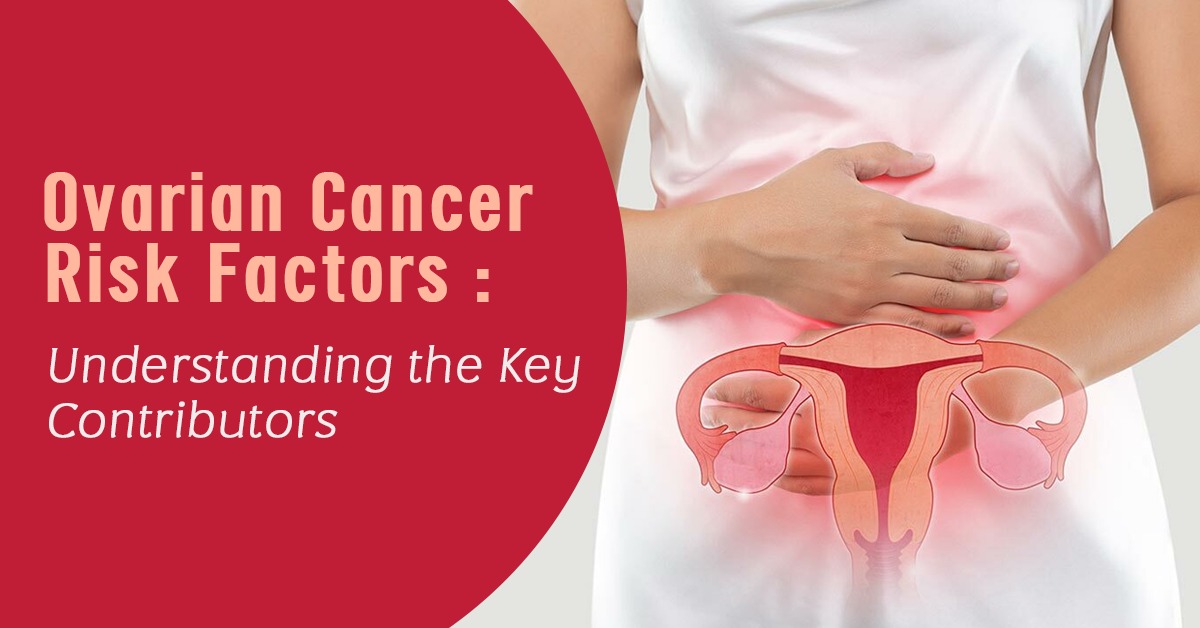
1. Understanding Ovarian Cancer
Ovarian cancer, a malignancy originating in the ovaries, is known as the "silent killer" due to its subtle early symptoms, making it difficult to detect. The ovaries, responsible for egg production and female hormones, become affected by this type of cancer. Raising awareness about the importance of recognizing potential risk factors and symptoms is crucial for early detection. A timely diagnosis can significantly improve treatment outcomes and survival rates. Therefore, it is essential for women to stay informed, undergo regular screenings, and consult healthcare professionals promptly if they experience any concerning signs. Seeking appropriate medical care and exploring available treatment options, such as ovarian cancer treatment in Uttam Nagar, can play a vital role in managing this disease effectively.
Certain medical conditions and treatments can increase the risk of ovarian cancer. For instance, women who have been diagnosed with breast, uterine, or colorectal cancer may have a higher likelihood of developing ovarian cancer. Additionally, women who have undergone hormone replacement therapy (HRT) for an extended period may be at an increased risk.
Obesity has been linked to an increased risk of ovarian cancer. A diet high in saturated fats and low in fruits and vegetables may also contribute to the development of this disease. Maintaining a healthy weight and adopting a balanced diet rich in nutrients can potentially lower the risk.
Long-term use of hormone replacement therapy, particularly estrogen-only formulations, can elevate the risk of ovarian cancer. Women considering HRT should discuss the potential benefits and risks with their healthcare providers.
Exposure to certain environmental factors, such as asbestos and talcum powder, has been associated with an increased risk of ovarian cancer. It is essential to minimize exposure to known carcinogens and adopt preventive measures to reduce the risk.
Smoking and heavy alcohol consumption have been linked to various types of cancer, including ovarian cancer. Quitting smoking and limiting alcohol intake can have a positive impact on overall health and potentially lower the risk of developing this disease.
Women diagnosed with endometriosis or polycystic ovary syndrome (PCOS) may have a higher risk of ovarian cancer. It is important for individuals with these conditions to discuss appropriate surveillance and preventive measures with their healthcare providers.
The use of certain fertility drugs, such as clomiphene citrate, may slightly increase the risk of developing ovarian cancer. However, the overall increase in risk remains low, and the benefits of fertility treatment often outweigh the potential risks.
Oral contraceptives have been shown to offer protective effects against ovarian cancer. Women who have never used birth control pills or have used them for a short duration may have a slightly higher risk compared to long-term users.
Several factors have been associated with a reduced risk of ovarian cancer. These include breastfeeding, tubal ligation, and the use of intrauterine devices (IUDs). While these factors provide some protection, it is essential to remember that they do not eliminate the risk entirely. Therefore, it is crucial to remain vigilant and prioritize regular medical check-ups to detect any potential signs of ovarian cancer. In the case of a diagnosis, exploring available treatment options, such as ovarian cancer treatment in Dwarka, becomes crucial for effective management and improved outcomes. By combining risk-reducing factors with appropriate medical interventions, individuals can take proactive steps toward minimizing their risk and maintaining their well-being.
Early detection plays a vital role in improving ovarian cancer outcomes. Regular pelvic exams, ultrasounds, and specific blood tests, such as CA-125, can aid in detecting the disease at an early stage. Additionally, maintaining a healthy lifestyle, including regular exercise and a well-balanced diet, can contribute to overall prevention efforts.
In conclusion, understanding the risk factors associated with ovarian cancer allows individuals to make informed decisions about their health. By identifying these factors, such as age, hormonal influences, family history, and inherited gene mutations (such as BRCA1 and BRCA2), we can take proactive measures to reduce the likelihood of developing ovarian cancer and promote early detection. It is important to prioritize regular medical check-ups, including access to ovarian cancer treatment in Dwarka, and adopt a healthy lifestyle encompassing balanced nutrition and exercise to minimize the risk of this disease. By staying vigilant and proactive, we can strive for better health outcomes and overall well-being.
Q1. Can ovarian cancer be prevented entirely?
A: While it is not possible to eliminate the risk entirely, adopting a healthy lifestyle, being aware of risk factors, and seeking regular medical check-ups can significantly reduce the chances of developing ovarian cancer.
Q2. Is a family history of breast cancer a significant risk factor for ovarian cancer?
A: Yes, a strong family history of breast cancer can increase the risk of ovarian cancer due to shared genetic factors.
Q3. Does using birth control pills reduce the risk of ovarian cancer?
A: Yes, long-term use of oral contraceptives has been associated with a reduced risk of ovarian cancer.
Q4. Can obesity increase the risk of ovarian cancer?
A: Yes, obesity has been linked to an increased risk of ovarian cancer. Maintaining a healthy weight is essential in lowering the risk.
Q5. How often should women undergo screening for ovarian cancer?
A: The frequency of screening may vary depending on individual risk factors. It is best to consult with the best ovarian cancer treatment in Uttam Nagar and a healthcare provider to determine the appropriate screening schedule.
In conclusion, understanding the risk factors associated with ovarian cancer allows individuals to make informed decisions about their health. By identifying these factors, such as age, hormonal influences, family history, and inherited gene mutations (such as BRCA1 and BRCA2), we can take proactive measures to reduce the likelihood of developing ovarian cancer and promote early detection. It is important to prioritize regular medical check-ups, including access to ovarian cancer treatment in Dwarka, and adopt a healthy lifestyle encompassing balanced nutrition and exercise to minimize the risk of this disease. By staying vigilant and proactive, we can strive for better health outcomes and overall well-being.